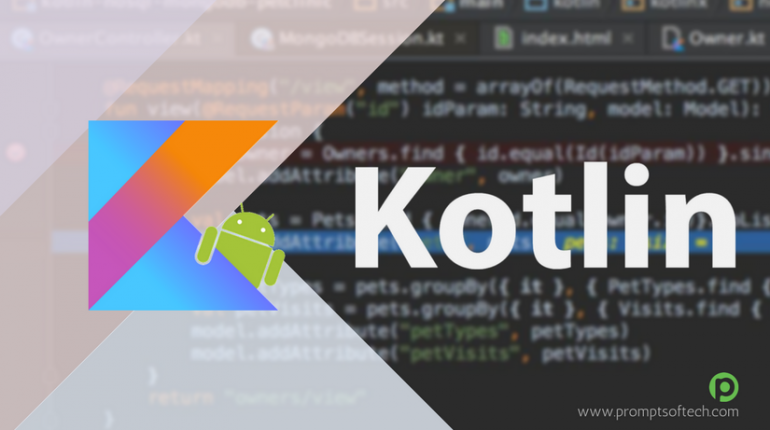In the year 2011, a team of St. Petersburg programmers, one of whom was the same developer who created Java IDE- IntelliJ under JetBrains, unveiled the first version of Kotlin as a new language for JVM (Java Virtual Machine).
After Java, Google announced Android gained official support for the Kotlin programming language in I/O 2017 Developers' Conference held in May 2017.
Kotlin is a statically-typed programming language comprising features like lambda expression, operator overloading, and more. The language can compile to JavaScript source code also.
Currently, the language is being widely accepted by the custom mobile application and Android app development company in India.
Why Kotlin?
Currently, we use Java for Android development. However, for versions below Android Nougat, we implement Java editions 6 and 7 which do not support Streams and Lambda expressions. That's where Kotlin comes in.
Kotlin is compiled to bytecode in Android which is 100% compatible with Java. It is developed by Jet Brains, is very easy and interesting for developers who work on scripting languages like JavaScript, Python, and Ruby, etc.
Here is the list of versatile features that Kotlin offers:
1. Interoperable
Java and Kotlin generate same bytecode so we can use Java code and library file in Kotlin program without any changes in existing code structure. Hence, Kotlin and Java files can flawlessly work together within the same project.
2. Null Safety
With an ability to catch Null Pointer Exception during compile time, Kotlin reduces the number of crashes during runtime. By default, every variable works as non-null. So, in the case you find a requirement to hold a null value, just append a question mark operator "?" at the end of variable type and you are done.
Let's see an example of null and non-null variables-
Null- var name: String = "abc"
Non-null- var name: String? = null
3. Support
Jet Brains offers Kotlin plugin for Android Studio and Eclipse. It is very simple to add plugins. On installing the plugins, you can access all IDE features normally. Another best feature of Android Studio is the "Convert Java File to Kotlin". It converts your existing Java code to Kotlin.
Kotlin is open source under Apache 2. Also, the Kotlin plug-in is bundled with Android Studio 3.0.
It has already been espoused by some major developers- Expedia, Flipboard, Pinterest, Square, and others for their production apps.
4. Less Code
Fewer lines of code compared to Java class for the same function. You can convert your Java code to Kotlin using the plugin and reduce the size of the program. So Kotlin makes codes simple and clean for the developer.
For example
Using Java
view.setOnClickListener (new View.OnClickListener() {
@Override
public void onClick(View v) {
// logic here
}});
Using Kotlin
view.SetOnClickListener{
// logic here
}
5. Smart Cast
Smart Cast is another best and interesting feature by Kotlin Compiler.
For example-
Using Java
if (view instanceof Button) {
((TextView) view).setText(“Click me!!”);
}
Using Kotlin
if (view is Button) {
view.setText(“Click me!!”); // Smart Cast
}
6. Data Classes
This feature is a big time saver. In Java, get() and set() methods are required for all fields while in Kotlin, we can declare the class and all its properties in a single line.
For example-
Using Java
public class Person {
private String name;
private String city;
public Person(String name, String city) {
this.name = name;
this.city = city;
}
public String getName() {
return name;
}
public void setName(String name) {
this.name = name;
}
public String getCity() {
return city;
}
public void setCity(String city) {
this.city = city;
}
}
Using Kotlin
data class Person(var name: String, var city: String)
7. Platform Support
Kotlin is a great fit for developing server-side applications and Android application. Besides, Kotlin provides the ability to target JavaScript.
8. Performance
Kotlin compiles to bytecode for Android so its performance remains nearly the same as Java, but in some cases, it's faster because Kotlin supports Inline Lambdas. Kotlin has better syntax than Java so you can write a little more complicated code at the same time.





No comments